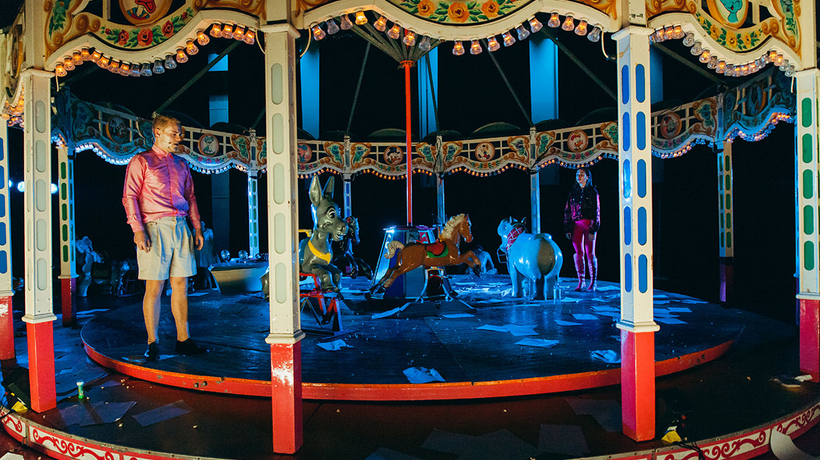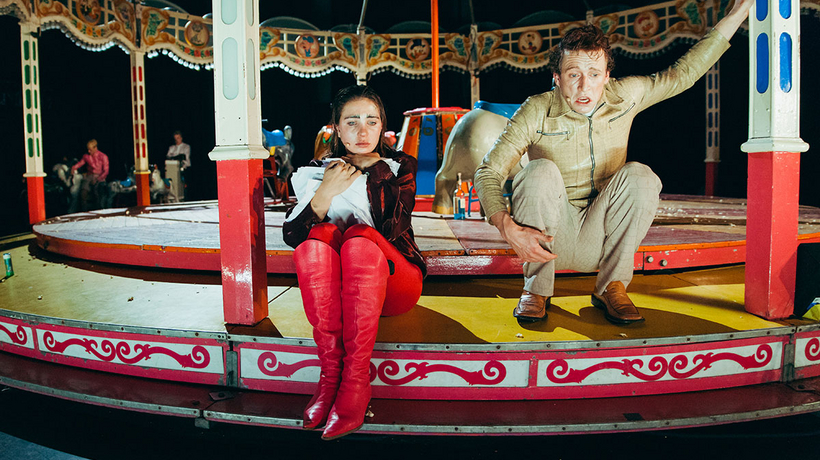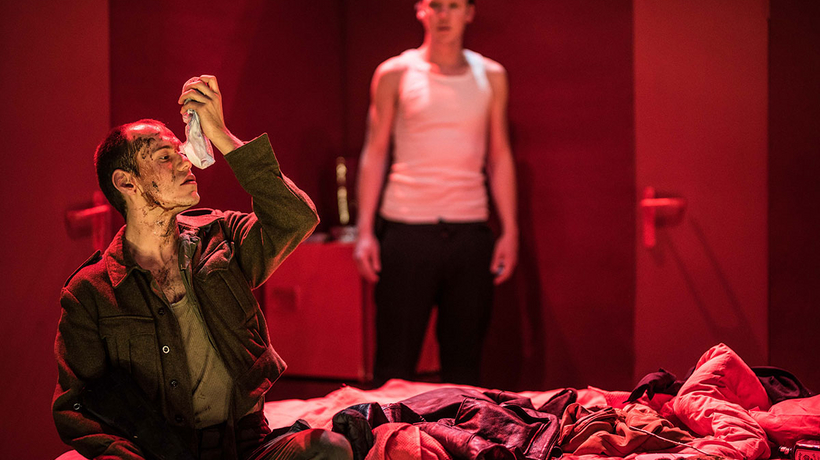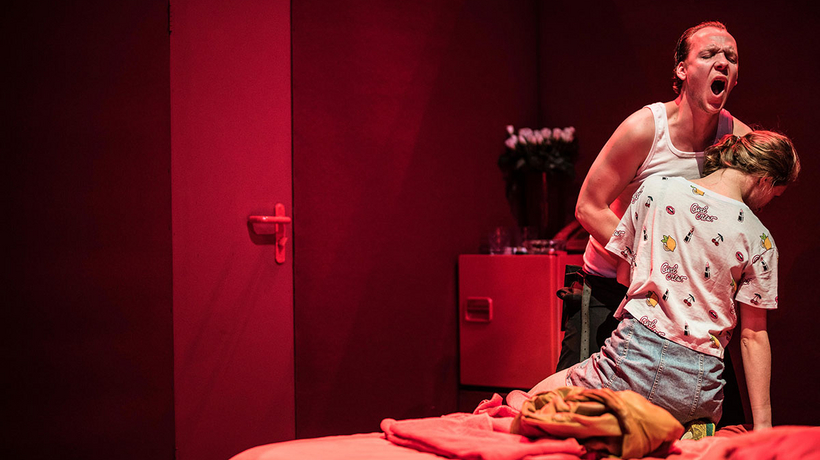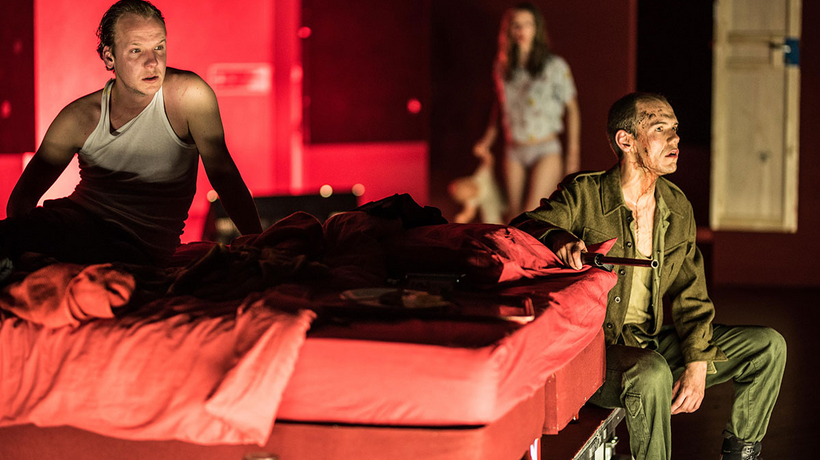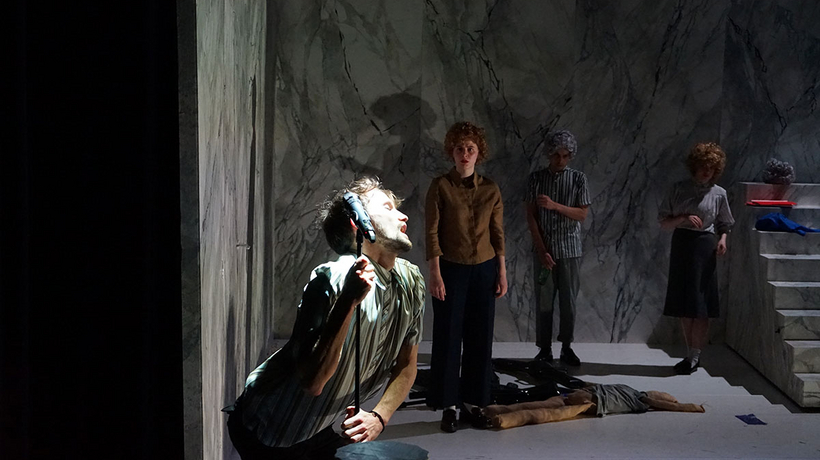Establish your own working culture
Theory and practice
The study programme touches on different directing languages and visions. There are theory subjects like theatre-, culture-, and music history, performance and text analysis, dramaturgy and philosophy. And also practical creative blocks: projects focusing on hip-hop, opera, audio plays, architecture, VR and other art forms. You immerse yourself in different (interdisciplinary) creative processes: what is the effect of sound and music? Of image and physicality? How do you work with actors? What status do science and research have in your work? How do location and audience influence your material? Who is your audience? You work with old, new and self-written texts or without text.
Working together
You visit theatre productions, museums and art in public space. You develop concepts and implement them. You work closely with other ATD students: Scenography, Production Podium Arts, Design & Technology, ATKA and the Mime Study Programme. You are taught by well-known and young theatre makers.
Learning to direct means learning to translate a conceptual idea into a performance. Learn to keep an overview. Learn to work with actors and a creative team. You practice how intuition and preparation go hand in hand. You analyze how other artists do this. You learn to examine your own thinking patterns and those of others. You learn how to maintain clarity in a collaboration with a view to the best result: the performance.
A solid theoretical foundation is important. In the mornings you will therefore take theoretical courses such as theatre, culture and music history, performance and text analysis, dramaturgy and philosophy: courses in which you learn to relate to the world in which you live. The program is aimed at providing you with a foundation of knowledge and experience with which you can position yourself in practice and through which you can continue to develop independently. There are also vocational preparation classes in which you make your personal Cultural Entrepreneurs Plan (COP).
In addition to the theoretical morning courses, the afternoons are focused on practical making blocks. You dive into different (interdisciplinary) creative processes. You visit theater performances, museums and art in public space. You develop concepts and implement them. You always learn to use your individuality as a director in a different way and from different forms.
The classes are small and the supervision is personal and intensive. There are many individual conversations in which, together with the student, it is discussed how the study is progressing and what the learning objectives are. You write a self-evaluation every block and a progress meeting takes place twice a year. Despite the fact that the education is strongly focused on the personal development of the directing student, complementarity is central: you are only a director if you can work well together, each from your own discipline and strength. Sometimes you make theater based on your own fascination, sometimes you work together collectively, but in almost every project you work closely with other ATD students.
Accreditation and degree

The bachelor's programme in Theatre Directing is a track within the Bachelor Theatre. The quality of this programme has been positively assessed by the Accreditation Organisation of the Netherlands and Flanders (NVAO). This means that upon successful completion of the programme students will receive an accredited bachelor's degree in Theatre and the title Bachelor Theatre. Only accreditated degree programmes are listed in the Dutch central register of higher education programmes (CROHO).


